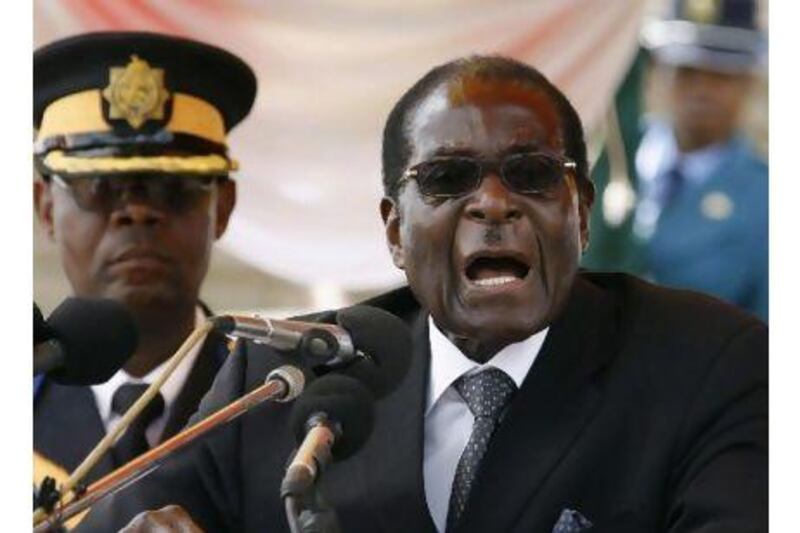Don't the Americans understand that their petty partisan budget gamesmanship (Obama warns of disaster without deal on debt limit, July 16) is bringing the whole world closer to economic disaster?
Americans always think they're special - political scientists call this "American exceptionalism" - but so often their domestic politics bring trouble to the whole world.
Kurt Richter, Abu Dhabi
It should be called the Arabian Gulf
The article about the Kuwaiti port on page 10 in the Friday issue (Iraq's trade fears over Kuwaiti port, July 15) shows a map of Kuwait and in front of it the label "Persian Gulf".
This mistake is unacceptable.
Name withheld by request
Don't ever pay a fee to see a flat
I refer to your story Renters complain of new charges (July 11).
Anyone asked to pay a fee should just use another agent. The idea of paying a fee to view makes me laugh out loud. With the glut of properties, they should be paying you to view.
A Wright, Dubai
'Antiterror' patrols are just for show
Last week's terrible, indefensible bombing attacks in India were part of the sad pattern of recent years in many countries.
Also part of the pattern was the response from Indian authorities: extra patrols and armed troops in train stations and other crowded places across the country, as in your front-page story and photo (India's PM pledges justice for the victims, July 15). As if any number of soldiers could have prevented the Mumbai bombs!
Governments everywhere go in for this sort of useless window-dressing every time there's an attack, just as surely as politicians say they could not have foreseen the attacks but are redoubling their vigilance and intelligence work.
The point of all this sort of thing, I suppose, is to reassure people that the government is in control. Of course that's true, but on the other hand no government can truly control the risk that these bloody killers will strike again.
Enzo DiLuca, Dubai
Water debate is about perceptions
With all due respect to letter-writer Hamad Bachi (More than just a bottle of water, July 15), it is he who is missing the point, which is about perceived quality and choice.
Restaurants and the customers who prefer imported water perceive that imported water is better than locally produced water: it isn't; read the labels.
And patrons should have a choice.
Maggie Hannan, Abu Dhabi
Laos is not part of Cambodia
There's a problem with your travel story Gourmet and active travel deals for early fall (July 15).
This "travel writer" seems to think that Laos is part of Cambodia, and hasn't caught on to the fact that Cambodia and Laos are separate countries.
How can we "tour the country's [Cambodia's] vibrant cities, from Laos to Vientiane, when Laos is a separate country and Vientiane is its capital?
Name withheld by request
Courts not really a tool of justice
The opinion column International justice lays foundation for change (July 16) ignored or glossed over the real problems with international courts of justice.
The main problem is that the courts are selective because they are powerless.
So people like Zimbabwean president Robert Mugabe are immune, and so they cling to office for fear of being embarrassed in a court after they yield power.
Also the courts are inept, as their low conviction rates and endless trials reveal. Perhaps some good will come of these courts in the long term, but in the short term they prolong conflicts, as with the Lord's Resistance Army in Africa.
These international courts are really just a thought experiment by legal scholars, not a tool of justice.
Emil Lang, Abu Dhabi
India is a role model for world
No article on democracy can be complete without a reference to India (Democracy in steep decline around the world, July 15). With over 1.3 billion people, many in poverty and illiterate, and despite over 3,000 languages and 27 states, India is a thriving democracy. The world looks to India to pep up the global economy.
Dr KB Vijayakumar, Dubai





